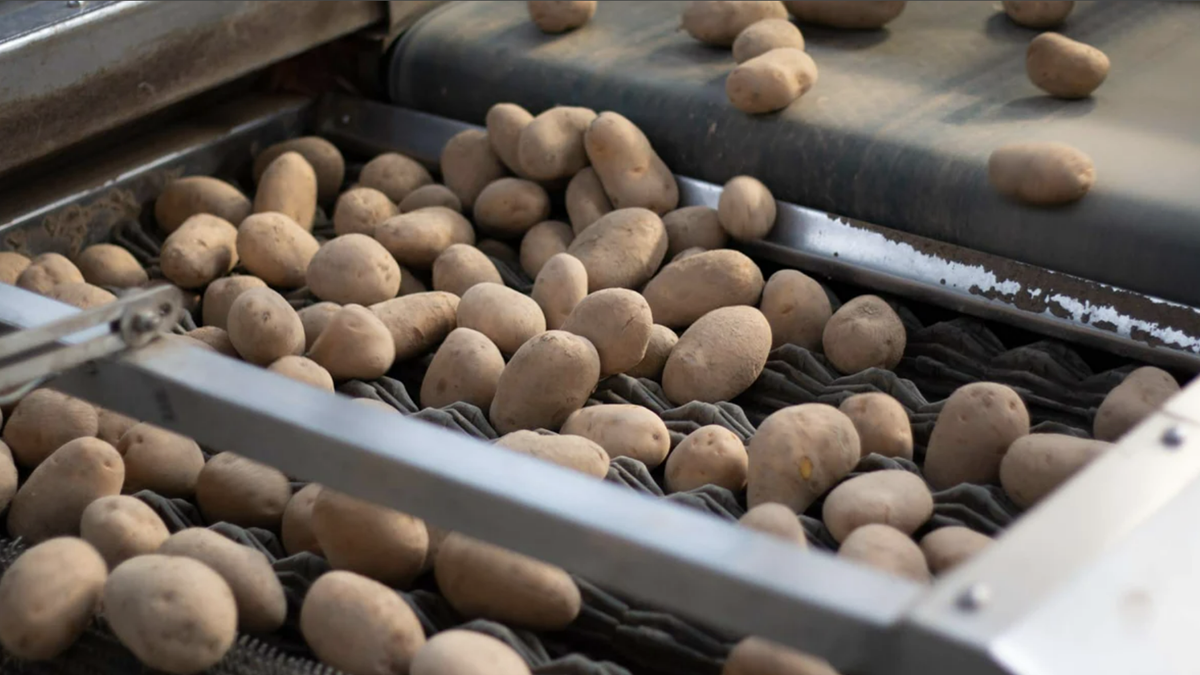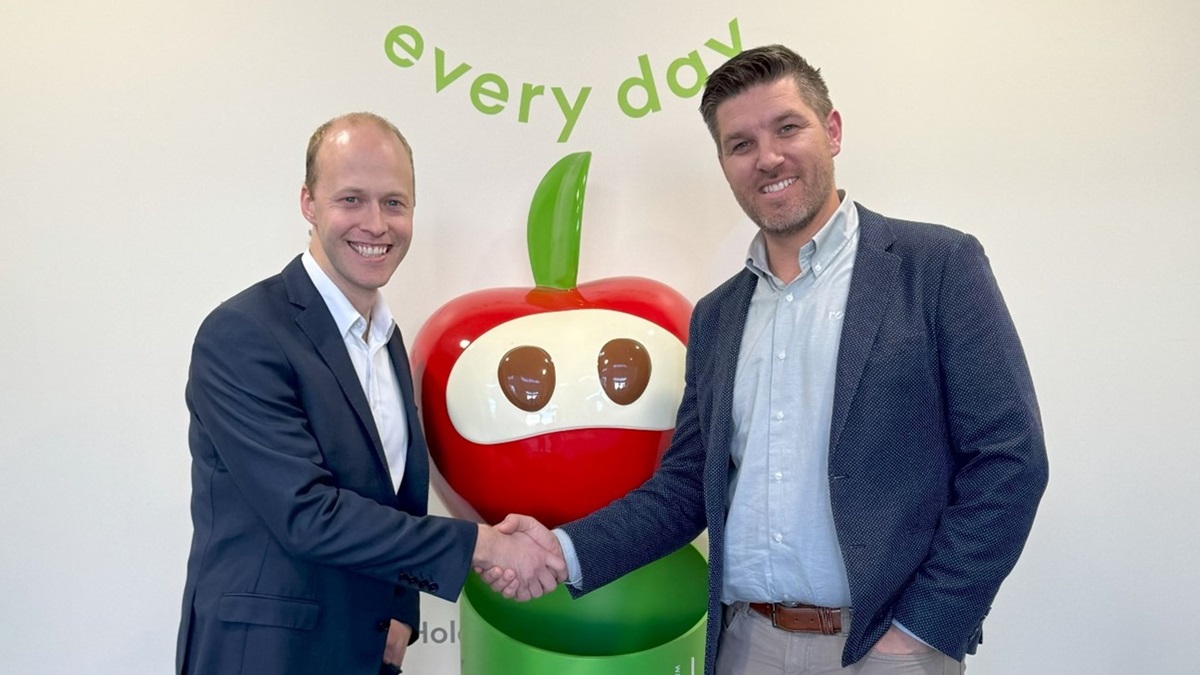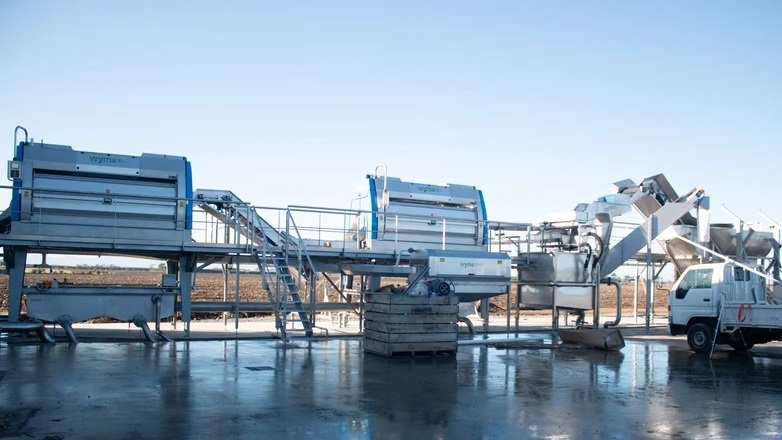Conditioning , Cooling and CA , Packaging , Processing
Major energy and water savings through line improvements for leading UK vegetable producer
1. Production Issues We Identified Working alongside Frederick Hiam Foods on the optimisation of their production process, several key issues were highlighted. These included: Ineffective destoning, allowing stones to make their way onto the trimming section of the line. Inadequate crop cleaning prior to trimming. Conveyor sweeps that were prone to blocking up and stopping line flow. Low rates of crop trimming to spec, with only 25% meeting the required standard. High requirements for manual intervention, requiring 12 people to work on the line and no pre-trimming inspection, impacting efficiency and the best. utilisation of people and resources. 2. Steps Taken to Optimise the Current Operation To address these issues, in partnership with the Frederick Hiam team, we implemented a two-phase optimisation plan. In phase 1, we installed the following systems: A Cyclone Destoner to remove stones from the crop. A Wet Hopper to provide effective buffer storage, pre-cleaning, and an accurate metered flow into the line to optimize line flow. A pre-cutting Vege-Polisher? V2B to effectively clean the crop prior to cutting. Gross defect Inspection Conveyor to identify and remove substandard crop before it reaches the trimmers. A pre-cutting Lift Roller Sizer to split the crop flow into predetermined diameters to optimize trimmer efficiency. In phase 2, we will install the following systems: Six Roto-Cut automatic vegetable trimming systems. Buffer tanks and feeds to the Roto-Cut trimming systems. Flumed feed to the post-cut Vege-Polisher? V2B. 3. Impact of the Changes Implemented According to Frederick Hiam Foods, the results of the optimisation plan have been impressive, in particular in the use of increasingly scarce and costly resources. The organisation has reduced water consumption by 30% and the use of energy by up to 25%. Product quality has also greatly increased due to crop efficiencies increasing from 60% to 95%, due to the new wash line's gentle handling, cleaning technologies and cutting accuracies of the new Wyma optical Roto-cut systems. Ultimately the process upgrades have seen a significant improvement in product uniformity and presentation to box or bag, making parsnips more attractive to the end customer and saving Frederick Hiams the cost of hand trimming to meet customer specifications. Part of Wyma?s approach is to take an overall look at the issues our customers are facing ? not only in terms of production, but across their entire operation. Frederick Hiams identified that the tight UK labour market was having an impact on productivity as well as increasing costs, constraining growth opportunities, decreasing customer satisfaction and causing stress and burn out in their existing workforce. Automation within the new parsnip line has reduced Frederick Hiam's labour demand by 15 FTE (Full Time Equivalent) workers in stage 1 alone, resulting in numerous benefits including increased productivity, cost savings, improved efficiency, and the opportunity for employees to focus on more complex and value-added tasks. Additional Benefits: In addition to reducing the power and water usage, creating higher customer satisfaction and reducing labour pressures, Frederick Hiams also seen a broad range of additional benefits, including: Fewer drops and better transitions, which leads to better crop presentation and lower risk of rejection due to bruising. Easier system cleaning, requiring less labour and downtime. Improved efficiency, with gross defect inspection prior to the current trimmers reducing the burden on operators to load the cutting belts with parsnips. A reduced reliance on seasonal labour due to the automation of the trimming process with the Roto-Cut system. Increased yield, with benefits downstream in areas such as packing efficiency. A consistent crop, leading to better presentation in the supermarket. Overall, the entire system is easier to maintain, manage and operate, making the whole process more time and resource efficient. Jamie Lockhart, Managing Director of Frederick Hiam Foods, says the openness of the conversations they can have with Wyma?s sales and service teams is what he enjoys most about the relationship.
19 October, 2023
1. Production Issues We IdentifiedWorking alongside Frederick Hiam Foods on the optimisation of their production process, several key issues were highlighted. These included: - Ineffective destoning, allowing stones to make their way onto the trimming section of the line. - Inadequate crop cleaning prior to trimming. - Conveyor sweeps that were prone to blocking up and stopping line flow. - Low rates of crop trimming to spec, with only 25% meeting the required standard. - High requirements for manual intervention, requiring 12 people to work on the line and no pre-trimming inspection, impacting efficiency and the best. utilisation of people and resources. 2. Steps Taken to Optimise the Current OperationTo address these issues, in partnership with the Frederick Hiam team, we implemented a two-phase optimisation plan. In phase 1, we installed the following systems: - A Cyclone Destoner to remove stones from the crop. - A Wet Hopper to provide effective buffer storage, pre-cleaning, and an accurate metered flow into the line to optimize line flow. - A pre-cutting Vege-Polisher V2B to effectively clean the crop prior to cutting. - Gross defect Inspection Conveyor to identify and remove substandard crop before it reaches the trimmers. - A pre-cutting Lift Roller Sizer to split the crop flow into predetermined diameters to optimize trimmer efficiency. In phase 2, we will install the following systems: - Six Roto-Cut automatic vegetable trimming systems. - Buffer tanks and feeds to the Roto-Cut trimming systems. - Flumed feed to the post-cut Vege-Polisher V2B. 3. Impact of the Changes ImplementedAccording to Frederick Hiam Foods, the results of the optimisation plan have been impressive, in particular in the use of increasingly scarce and costly resources. The organisation has reduced water consumption by 30% and the use of energy by up to 25%. Product quality has also greatly increased due to crop efficiencies increasing from 60% to 95%, due to the new wash line's gentle handling, cleaning technologies and cutting accuracies of the new Wyma optical Roto-cut systems. Ultimately the process upgrades have seen a significant improvement in product uniformity and presentation to box or bag, making parsnips more attractive to the end customer and saving Frederick Hiams the cost of hand trimming to meet customer specifications. Part of Wymas approach is to take an overall look at the issues our customers are facing not only in terms of production, but across their entire operation. Frederick Hiams identified that the tight UK labour market was having an impact on productivity as well as increasing costs, constraining growth opportunities, decreasing customer satisfaction and causing stress and burn out in their existing workforce. Automation within the new parsnip line has reduced Frederick Hiam's labour demand by 15 FTE (Full Time Equivalent) workers in stage 1 alone, resulting in numerous benefits including increased productivity, cost savings, improved efficiency, and the opportunity for employees to focus on more complex and value-added tasks. Additional Benefits:In addition to reducing the power and water usage, creating higher customer satisfaction and reducing labour pressures, Frederick Hiams also seen a broad range of additional benefits, including: - Fewer drops and better transitions, which leads to better crop presentation and lower risk of rejection due to bruising. - Easier system cleaning, requiring less labour and downtime. - Improved efficiency, with gross defect inspection prior to the current trimmers reducing the burden on operators to load the cutting belts with parsnips. - A reduced reliance on seasonal labour due to the automation of the trimming process with the Roto-Cut system. - Increased yield, with benefits downstream in areas such as packing efficiency. - A consistent crop, leading to better presentation in the supermarket. Overall, the entire system is easier to maintain, manage and operate, making the whole process more time and resource efficient. Jamie Lockhart, Managing Director of Frederick Hiam Foods, says the openness of the conversations they can have with Wymas sales and service teams is what he enjoys most about the relationship.
https://youtu.be/PKNOtOo4Lwk?si=nHWBhItAdp7FY2GR












